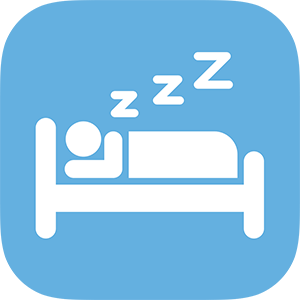
The study
Sleep apnea syndrome is a frequent sleep disorder among the current population. Until now, we thought only 2 to 4% of the population suffered from this sleep disorder. According to the most recent epidemiological data, 49% of men and 23% of women over the age of 40 are considered to be at risk for sleep apnea, but many of these patients are neither diagnosed nor treated. Current procedures to detect sleeping sickness are costly, time-consuming and can not be used routinely. The objective of the Lausanne NoSAS Score test is to offer a reliable, rapid and practical screening tool for this sleep disorder based on the study carried out by the CHUV.
Method and results
To develop the “Lausanne NoSAS Score” test, the CHUV Sleep Center and the UNIL, rigorously analysed the statistical data from the CoLaus / HypnoLaus sleep cohort in Lausanne. This control group consisted of over 2,000 randomly selected individuals aged from 40 to 80 who allowed us to record their sleep. The score to measure the risk of apnea was tested on a group of more than 1000 people from another continent who participated in a sleep study in Sao Paulo, Brazil. The results from this test were excellent. From this analysis, five criteria were identified to evaluate the risk of sleep apnea: neck circumference, body mass index (BMI), sex, age and snoring. The criteria are the least subjective possible, except for snoring, to minimize errors of judgment. This score ranges from 0 to 17, allocates 4 points for a neck circumference greater than 40 cm, 3 points for a BMI between 25 kg / m² and 29.9 kg / m² or 5 points for a BMI of 30 kg / M² or more, 2 points for snoring, 4 points for being over 55 and 2 points for being male.
The added value of the Lausanne NoSAS Score
As a physician, the underdiagnosis of sleep disorders is problematic for several reasons. The first concerns the difficulty in identifying related symptoms. Indeed, these symptoms are often confused with other illnesses. On the other hand, the scores currently used in clinical practice are old and have emerged as technologies and systems for respiratory events analysis were less accurate than current standards. Finally, procedures for the diagnosis of sleep disorders such as polysomnography are costly and difficult to implement. In order to solve these different problems, the Lausanne NoSAS Score test represents a new tool, in the form of a fast and reliable questionnaire to detect patients at risk of sleep apnea. Because of its high selection power, the “Lausanne NoSAS Score” test will help you to determine precisely which patients need to undergo additional tests such as clinical polysomnography.
Download the application
Download the Lausanne NoSAS Score application on your phone for free
Take the test
Instantly test your patient’s risk of sleep apnea during a consultation
Based on a 2016 study from the Lancet Respiratory Medicine
The Lausanne NoSAS Score is a scientifically proven test. Details of the study and ITS results were published in The Lancet Respiratory Medicine.
